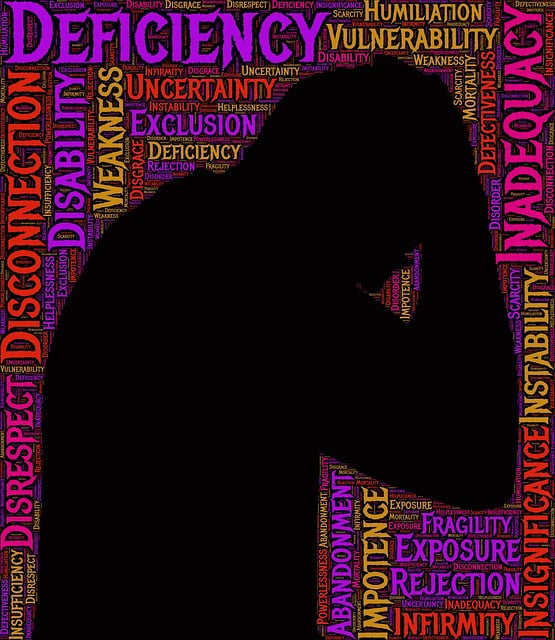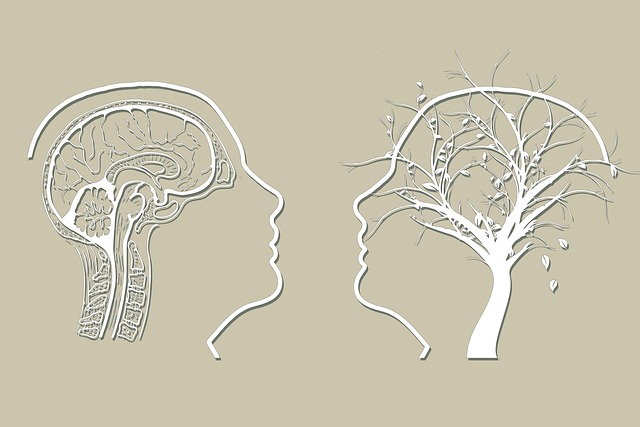Healthcare professionals face high burnout risk due to demanding work conditions. Early recognition of signs like physical exhaustion and irritability is crucial. Incorporating therapy for panic disorder and anxiety attacks into burnout plans addresses underlying mental health issues. Enhancing emotional intelligence, cultural sensitivity, self-care, mindfulness, and setting boundaries are vital for stress management, patient connection, and long-term commitment to quality care. Cognitive-behavioral therapy (CBT) helps reframe negative thought patterns, builds resilience, and prevents burnout in medical professionals.
Healthcare provider burnout is a growing concern, impacting both individual well-being and patient care. This article explores comprehensive strategies to prevent and address burnout among healthcare professionals. From recognizing early signs of exhaustion to implementing mindfulness practices and seeking professional therapy for conditions like panic disorder and anxiety attacks, these approaches foster sustainable work-life balance. By adopting evidence-based strategies, healthcare providers can enhance resilience, mitigate stress, and improve patient outcomes in the long term.
- Recognizing Burnout Signs: Early Detection for Healthcare Providers
- Creating Sustainable Work-Life Balance: Strategies for Well-being
- Implementing Mindfulness and Relaxation Techniques to Combat Stress
- Professional Support and Therapy: Treating Panic Disorder and Anxiety Attacks
Recognizing Burnout Signs: Early Detection for Healthcare Providers

Healthcare providers are at a heightened risk of burnout due to the demanding nature of their work. Recognizing the signs early is crucial for preventing burnout and maintaining the well-being of healthcare professionals. Symptoms can manifest in various ways, from physical exhaustion and increased irritability to detachment from patients and a sense of cynicism. Healthcare workers should be vigilant about changes in their emotional state, sleep patterns, and overall energy levels.
One effective strategy is to incorporate therapy for panic disorder and anxiety attacks into burnout prevention plans. This can help address underlying mental health issues that may contribute to burnout. Additionally, fostering emotional intelligence and cultural sensitivity in mental healthcare practice enables providers to better manage stress and connect with patients on a deeper level. By prioritizing emotional healing processes, healthcare professionals can develop resilience and sustain their commitment to patient care over time.
Creating Sustainable Work-Life Balance: Strategies for Well-being

In today’s demanding healthcare landscape, maintaining a sustainable work-life balance is more crucial than ever for providers’ well-being. Healthcare professionals often face long hours and high-stress situations, which can lead to burnout if left unaddressed. Therefore, prioritizing self-care and setting boundaries are essential strategies to prevent this. Providers should aim to allocate dedicated time for personal activities, hobbies, and relaxation to recharge their batteries. This might involve creating structured schedules that separate work from personal life, ensuring sufficient sleep, engaging in regular physical activity, and practicing mindfulness or positive thinking techniques to reduce stress.
Additionally, utilizing available resources such as therapy for panic disorder and anxiety attacks can be immensely beneficial. Many healthcare workers struggle with the mental health impacts of their roles, and seeking professional support through counseling or psychotherapy can help manage these challenges. Conflict resolution techniques and stress reduction methods are also valuable tools to navigate demanding situations without sacrificing personal well-being.
Implementing Mindfulness and Relaxation Techniques to Combat Stress

Implementing mindfulness and relaxation techniques is a powerful strategy to combat stress among healthcare providers. In today’s fast-paced environment, where medical professionals often face high-pressure situations and demanding workloads, taking time for self-care becomes essential. Mindfulness practices, such as meditation and deep breathing exercises, can help healthcare workers stay present, reduce anxiety, and improve their overall well-being. These techniques have been shown to lower stress levels and enhance emotional resilience, which are crucial factors in preventing burnout.
Incorporating relaxation strategies like yoga or progressive muscle relaxation into daily routines can also offer significant benefits. Such activities promote mental health education programs design by fostering positive thinking and a sense of calm. Moreover, these practices may reduce the risk of developing panic disorder and anxiety attacks, common issues among healthcare providers. By prioritizing self-care through mindfulness and relaxation, medical professionals can better manage stress, improve patient care, and sustain their commitment to their careers.
Professional Support and Therapy: Treating Panic Disorder and Anxiety Attacks

Healthcare providers, like anyone else, are susceptible to stress and anxiety, which can lead to panic disorder and frequent anxiety attacks. These conditions can significantly impact their ability to deliver quality care. Professional support and therapy play a pivotal role in preventing burnout and promoting well-being among healthcare workers.
Therapy for panic disorder and anxiety attacks often involves cognitive-behavioral therapy (CBT), which helps individuals identify and change negative thought patterns and behaviors contributing to their symptoms. Building resilience through emotional intelligence, a key aspect of CBT, equips healthcare providers with the tools to manage stress effectively. Additionally, incorporating mind over matter principles can empower them to reframe challenging situations, enhancing their ability to cope with pressure and maintain a positive mindset, ultimately preventing burnout.
Healthcare provider burnout is a growing concern, but with proactive strategies, it can be prevented. Recognizing early signs of burnout, prioritizing work-life balance, incorporating mindfulness, and seeking professional support like therapy for panic disorder and anxiety attacks are all vital steps towards fostering well-being. By implementing these strategies, healthcare professionals can enhance their resilience, maintain patient care quality, and find fulfillment in their careers.














